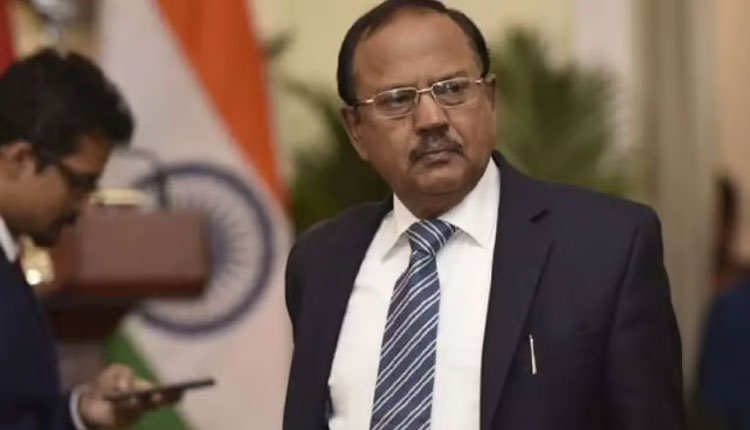Following India’s pinpoint airstrikes on terrorist camps in Pakistan and Pakistan-occupied Kashmir, Lieutenant General Asim Malik, Pakistan’s National Security Advisor (NSA) and ISI Chief, reportedly initiated contact with India’s NSA, Ajit Doval. The call, which occurred shortly after India’s Operation Sindoor on May 7th, 2025, is being interpreted as an attempt by Pakistan to de-escalate tensions amid fears of further conflict between its nuclear-armed neighbours.
Operation Sindoor: India’s Swift Retaliation
India launched Operation Sindoor in response to a deadly terrorist attack in Pahalgam, Kashmir, on April 22nd, 2025, which claimed 26 lives. The meticulously planned operation targeted nine terrorist strongholds in Pakistan and Pakistan-occupied Kashmir. It focused exclusively on infrastructure linked to groups including Jaish-e-Mohammed, Lashkar-e-Taiba, and Hizbul Mujahideen. India has emphasised that the strikes were precise, aimed solely at terrorism-related facilities, and caused no harm to Pakistani civilians, military, or economic assets.
The operation, carried out in the early hours of May 7th, has been hailed as a strong message to Pakistan-backed terror outfits. India has publicly stated its intent to avoid an escalation, with Doval briefing counterparts in the United States, United Kingdom, China, Russia, Saudi Arabia, and other nations, ensuring that the strikes were measured and restrained.
Pakistan’s Response: Threats and Diplomacy
Pakistan’s Prime Minister Shehbaz Sharif condemned the strikes as an “act of aggression” and vowed a retaliatory response at the time and place of Pakistan’s choosing. In a national address, Sharif expressed confidence in Pakistan’s military to counter India’s actions. He framed the strikes as an imposition of war on his country. Despite this aggressive rhetoric, Pakistan’s outreach to India through its NSA suggests a parallel effort to mitigate further escalation.
According to Pakistan’s Deputy Prime Minister and Foreign Minister, Ishaq Dar, in an interview with TRT World, the communication between Malik and Doval marked an unprecedented instance of upper-level contact between the two nations during a crisis. Dar did not reveal the details of the discussion. However, sources suggest that Malik’s call was a final attempt to persuade India to show restraint. This outreach comes despite New Delhi’s longstanding policy, upheld under Prime Minister Narendra Modi, to reject dialogue with Islamabad until all cross-border terrorism is halted.
The international community watched with apprehension as tensions rose between the nuclear-armed rivals with a history of conflict. United States Secretary of State Marco Rubio urged both sides to maintain open lines of communication and avoid further escalatory actions that risk igniting a wider confrontation. Similar appeals emphasising the necessity of talks to stabilise the region were made by the United Kingdom, Japan, and other global heavyweights.
Malik and Doval’s discussion represents a noteworthy shift given the prolonged India-Pakistan freeze. New Delhi’s steadfast stance that “terrorism and talks cannot coexist” has largely shaped its approach, resulting in Pakistan’s near-total diplomatic isolation recently. That Islamabad initiated this call suggests an acknowledgment that India’s retaliation for the Pahalgam attack, which caught Pakistani military and militant networks off guard, was far more severe than anticipated.
While Pakistan outwardly displays resistance, its security advisor’s hushed diplomacy suggests that India’s bold gambit has deeply unsettled the nation. For now, India clings to resolute resolve: it eschews aggravation yet vows an answer should outrage emerge. As global eyes witnessed, the communiqués between these two sentinels stand pivotal in thwarting threats of wider warfare. Their covert colloquy could calm the crisis of conflict.



Comments are closed.